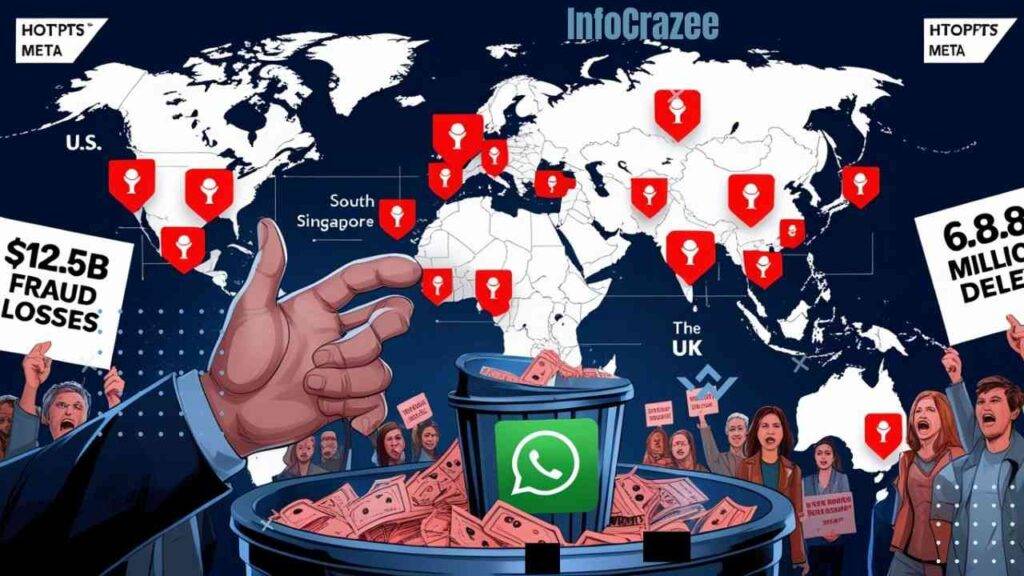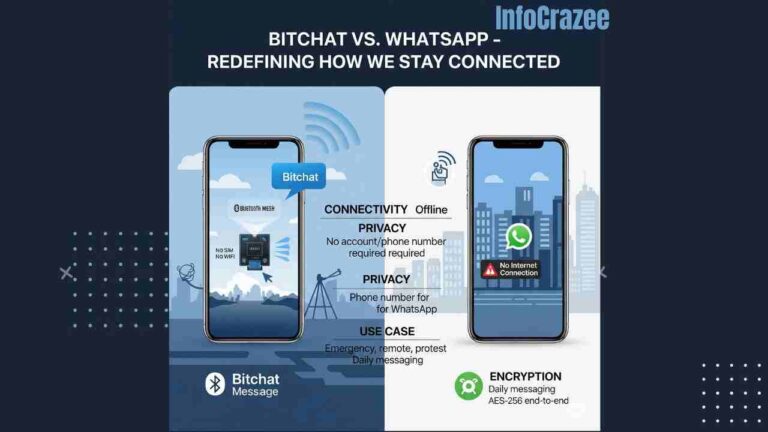Meta Deletes 6.8 Million WhatsApp Accounts Tied to Criminal Scams and Fraud
Meta, the parent company of WhatsApp, has removed over 6.8 million accounts linked to global scam operations in the first half of 2025, marking one of the platform’s most aggressive anti-fraud campaigns to date. The crackdown, announced on August 5, 2025, targets sophisticated criminal networks, particularly in Southeast Asia, exploiting WhatsApp for fraudulent schemes like cryptocurrency scams and pyramid frauds, often involving forced labor.
A Surge in Sophisticated Scams
The deleted accounts were primarily connected to scam centers in countries like Cambodia, Myanmar, and Thailand, where organized crime groups use coercive tactics, including modern slavery, to run operations. These scams typically begin with text messages or social media lures, moving victims to WhatsApp group chats or private messages to promote fake investment opportunities or fraudulent schemes. One notable case involved a Cambodian network using ChatGPT-generated messages to entice users into a “rent-a-scooter” pyramid scheme, offering cash for social media likes before routing victims to Telegram for further exploitation. Meta, in collaboration with OpenAI, disrupted this operation, highlighting the growing role of AI in both perpetrating and combating cybercrime.
Meta’s proactive approach, using machine learning to detect suspicious activity, allowed it to ban many accounts before scammers could fully operationalize them. “We’re staying ahead of the curve by identifying and removing these accounts early,” said Clair Deevy, WhatsApp’s Director of External Affairs. The company reported that scams often involve upfront payments for promised returns, a red flag for users.
New Safety Features
Alongside the account purge, WhatsApp introduced enhanced anti-scam tools. A new “Safety Overview” feature alerts users when added to group chats by unknown contacts, a common scam tactic. The platform also promotes two-step verification to prevent account hijacking and encourages reporting suspicious messages. These measures aim to protect WhatsApp’s 2 billion users, particularly in high-growth markets like Africa, where fraudsters exploit local languages and cultural themes to gain trust.
Global Impact and Criticism
The scale of the takedown underscores the escalating threat of digital fraud. The U.S. Federal Trade Commission reported $12.5 billion in consumer losses to fraud in 2024, a 25% increase from the previous year, with fake investment scams among the top categories. In regions like Singapore, police have urged vigilance against unusual messaging app requests, while South African authorities echo calls to report suspicious activity promptly.

Despite the crackdown, consumer groups argue Meta must do more. UK-based Which? welcomed the action but criticized persistent scam ads across Meta’s platforms, including Facebook and Instagram. “Meta needs to prevent scams from appearing in the first place,” said consumer law expert Lisa Webb, urging stronger enforcement under the UK’s Online Safety Act.
A Persistent Battle
The rise of AI-driven scams, like the “pig butchering” schemes that build trust before fleecing victims, complicates the fight. Meta’s collaboration with OpenAI and global law enforcement signals a commitment to tackling these evolving threats, but the company acknowledges the challenge is ongoing. “Scammers adapt weekly, so we’re investing in technology and partnerships to stay ahead,” Deevy said.
As fraudsters leverage AI and cross-platform tactics, Meta’s efforts highlight the need for user vigilance and robust platform defenses. For now, the deletion of 6.8 million accounts is a significant step, but the battle against digital scams remains far from over.






